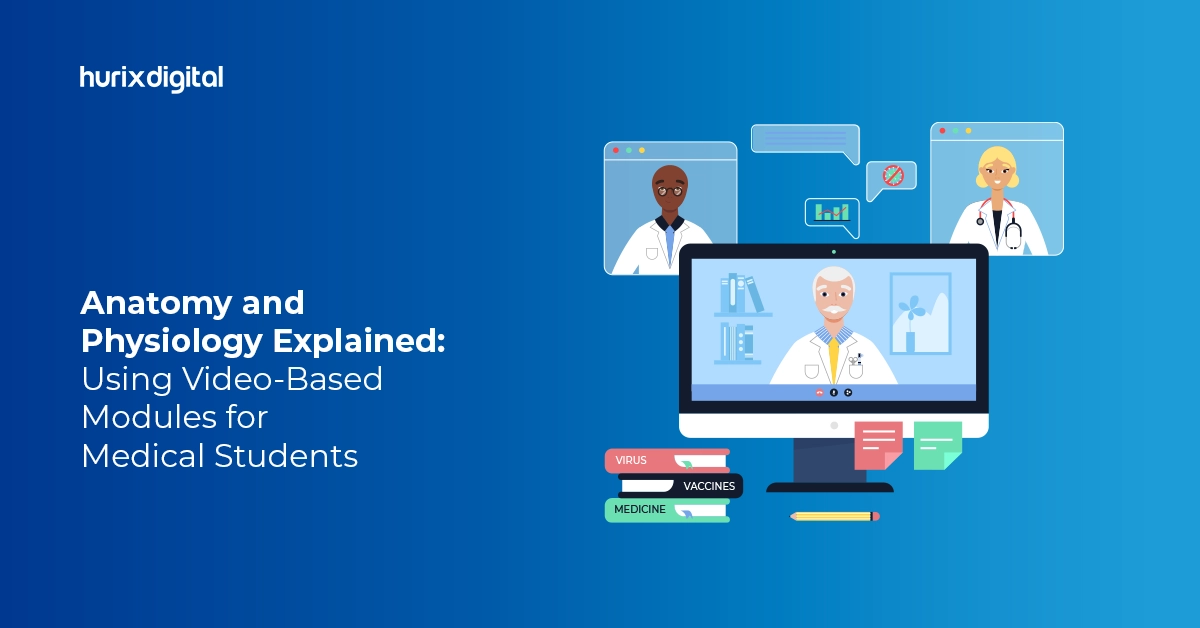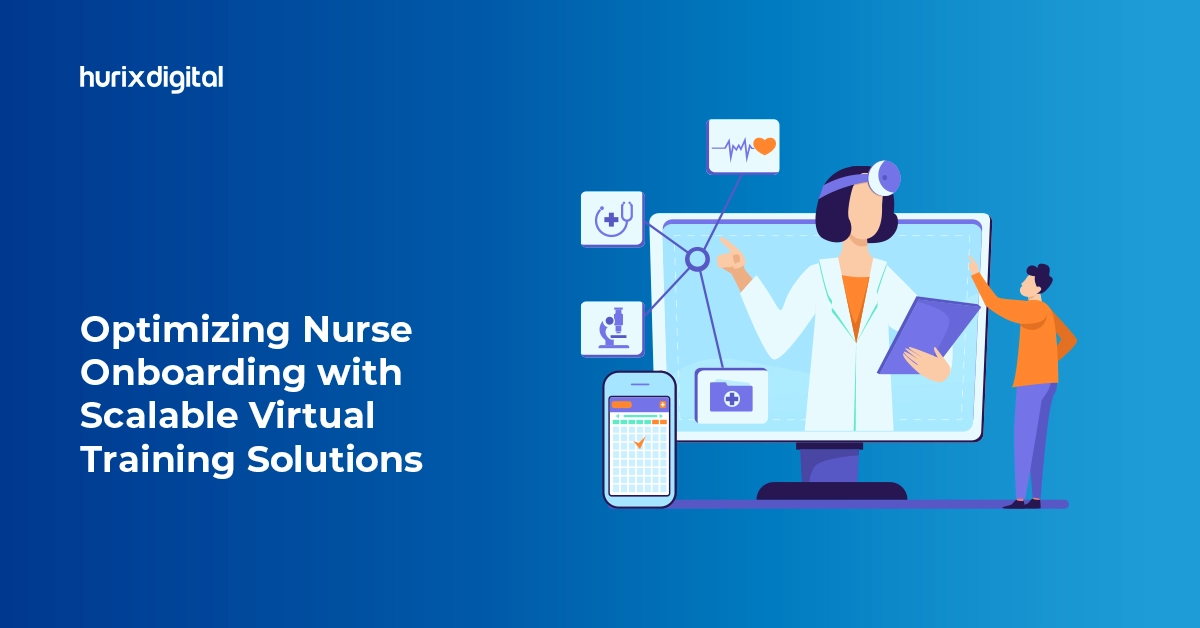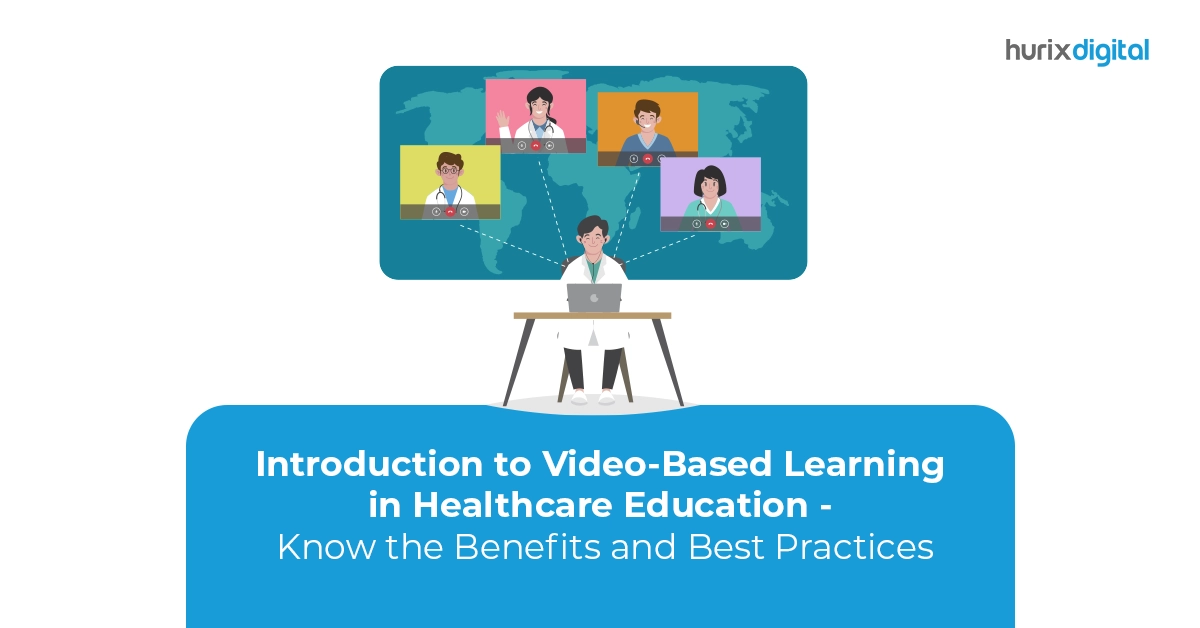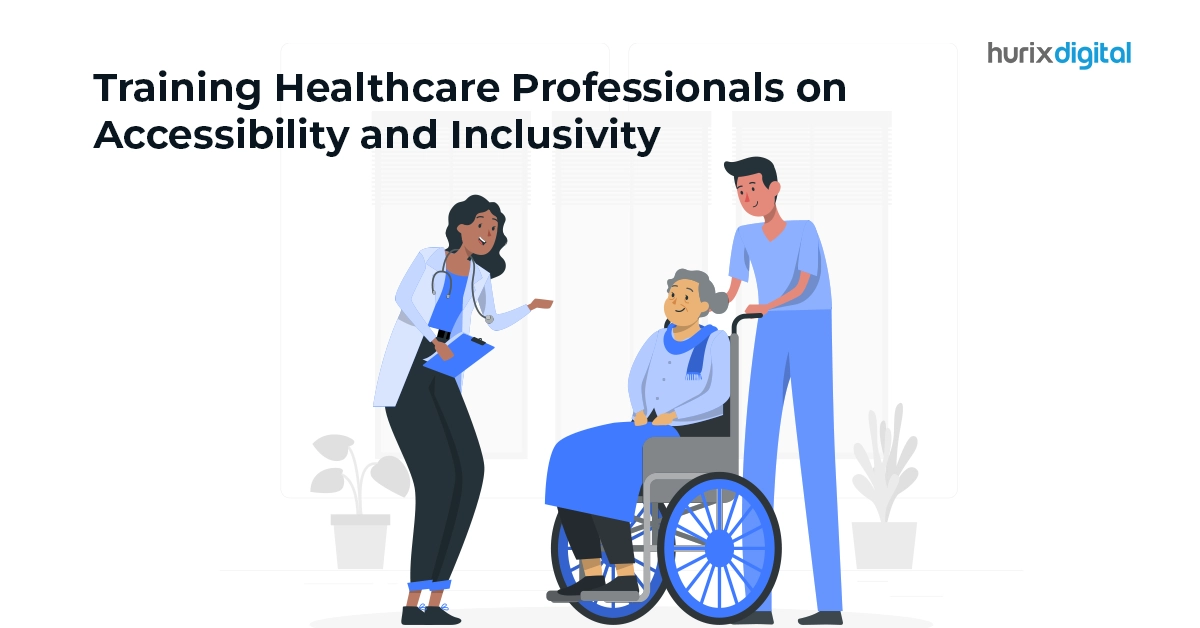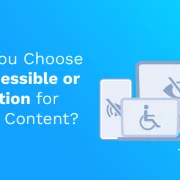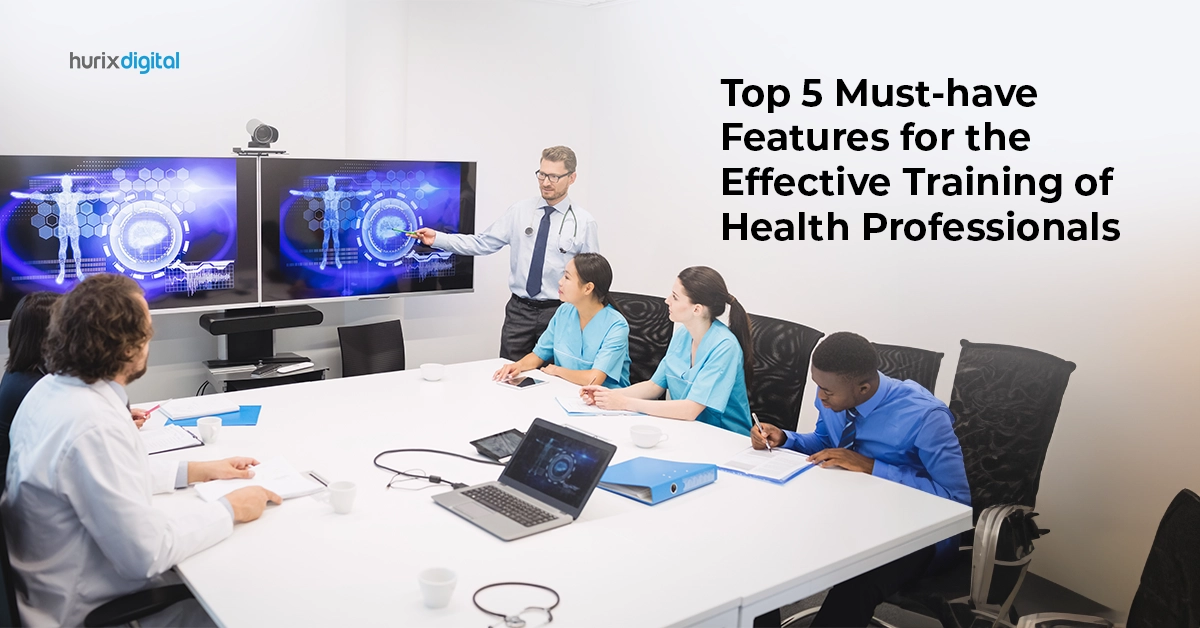
Top 5 Must-Have Features for Effective Healthcare Training
Summary
Learn about essential features for designing effective healthcare training programs, including interactive elements, real-world scenarios, and assessments to enhance learning outcomes.
Where groundbreaking discoveries and innovative technologies constantly reshape the healthcare landscape, one thing remains constant: the importance of practical training and education for health professionals. The effectiveness of their training programs is paramount, as it directly impacts the quality of care delivered to patients.
In today’s blog, we will dive deeper into the critical realm of e-learning in healthcare and discover the top five must-have features that define an effective training program for health professionals. From immersive learning experiences to cutting-edge resources and more, we will uncover all the key elements that make a healthcare training program truly transformative.
Let’s get started!
Table of Contents:
- Understanding the Objectives of A Healthcare Training Program
- Top 5 Features that All Healthcare Training Programs Must Have
- Final Thoughts
Understanding the Objectives of a Healthcare Training Program
In any effective training plan, clarity about the objectives is crucial. These objectives serve as guiding principles and ensure the training remains focused and purpose-driven. Let’s look into the key goals that a healthcare training program should aim to achieve:
- Skill Development: The primary objective of any healthcare training program is to equip participants with the necessary clinical and technical skills. This includes hands-on training in procedures, diagnosis, treatment, and patient care. Skills development is the foundation upon which healthcare professionals build their competence.
- Knowledge Acquisition: Healthcare professionals must have a strong theoretical foundation beyond practical skills. Training programs should impart comprehensive medical knowledge, keeping participants up-to-date with the latest advancements in their field.
- Patient-Centered Care: Healthcare isn’t just about treating conditions; it’s about caring for individuals. A crucial objective of training programs is to instill a patient-centered approach, emphasizing empathy, communication, and the importance of understanding each patient’s unique needs and preferences.
- Ethical and Legal Understanding: Healthcare professionals must navigate complex ethical and legal landscapes. Training programs should ensure participants are well-versed in medical ethics, patient confidentiality, informed consent, and legal obligations to provide safe and responsible care.
- Critical Thinking and Problem-Solving: Healthcare is full of challenges and unexpected situations. Training programs should foster critical thinking skills, enabling professionals to analyze complex situations, make informed decisions, and adapt to evolving patient needs.
- Interdisciplinary Collaboration: Healthcare is a team effort, and effective collaboration between healthcare professionals is essential. Training should emphasize the importance of teamwork in a healthcare setting, effective communication, and the ability to work seamlessly with other healthcare providers.
- Cultural Competence: In today’s diverse world, healthcare professionals must be culturally competent to provide care that is sensitive and respectful of diverse backgrounds and beliefs. Training programs should promote cultural awareness and competence.
- Continuous Learning: Healthcare is a dynamic field, and professionals must commit to lifelong learning. Training programs should instill a culture of continuous improvement and the importance of staying updated with the latest research and medical advancements.
- Quality and Safety: Patient safety is paramount. Training programs must emphasize the importance of adhering to rigorous quality standards, infection control protocols, and error prevention measures to ensure the highest level of patient safety.
- Leadership and Management: For those in leadership roles within healthcare, training should include principles of leadership, management, and healthcare administration, ensuring that healthcare organizations are well-run and efficient.
Also Read: Transform Your Training Program with Learning Paths
Top 5 Features that All Healthcare Training Programs Must Have
The importance of staff training in healthcare cannot be understated as it plays a pivotal role in shaping the competence and expertise of future healthcare professionals. Whether it’s an aspiring doctor, nurse, pharmacist, or any other healthcare provider, the quality of their training program can significantly impact their ability to provide excellent patient care.
Here are the top five features that all training programs for healthcare professionals must incorporate to ensure their effectiveness:
1. Comprehensive Curriculum
A robust and comprehensive curriculum is the cornerstone of any healthcare training program. It should cover a wide range of topics relevant to the specific field of study. This includes foundational sciences, clinical skills, patient care, medical ethics, and legal considerations.
Furthermore, a well-structured curriculum ensures that students gain a deep understanding of the field, preparing them for the challenges they will face in real-world healthcare settings.
2. Hands-On Clinical Experience
Healthcare is a practical profession, and hands-on experience is invaluable. Training programs must provide students with ample opportunities for internships and practical skills training.
A great example of this is scenario-based learning. These programs empower healthcare trainees by immersing them in real-world medical situations. Through interactive simulations and tailored scenarios, trainees gain valuable hands-on experience, enhancing their decision-making skills and boosting confidence in critical patient care situations.
This immersive approach ensures more effective and competent healthcare professionals.
3. Access to Cutting-Edge Technology
Medicine and healthcare are constantly evolving with new technologies and treatment modalities. Training programs should have access to state-of-the-art simulation training labs, digital tools, and resources such as training management systems. Exposure to cutting-edge technology ensures that healthcare professionals are well-prepared to embrace innovation and provide the best possible care to patients.
4. Interdisciplinary Education
Collaboration is fundamental to healthcare, and training programs should reflect this reality. As stated above, healthcare professionals often work in interdisciplinary teams. Hence, teamwork and collaboration in healthcare training solutions must be reinforced actively.
This interdisciplinary education helps students understand the roles and responsibilities of different healthcare providers, fostering a more cohesive and patient-centric approach to care.
5. Continuous Assessment and Feedback
Regular assessment and feedback mechanisms are essential to ensure students progress and meet the program’s objectives. This includes written exams, practical evaluations, clinical assessments, and feedback from instructors and preceptors.
Leveraging digital tools can enhance continuous assessment and feedback in training through regular quizzes, assessments, and knowledge checks integrated into the learning modules to gauge trainee progress.
Additionally, interactive elements like peer evaluations and instructor feedback facilitate ongoing performance assessment. This multi-faceted approach helps learners track their development and receive timely input for continuous improvement throughout the training program.
Also Read: What is Healthcare Compliance Training? Everything You Need to Know
Final Thoughts
In conclusion, healthcare training programs should be designed to produce highly skilled, compassionate, and adaptable healthcare professionals. By incorporating these top five features, training programs can ensure that learners are well-prepared to meet the ever-growing demands and challenges of the healthcare industry.
Ready to transform your healthcare training programs into excellence? Discover Hurix Digital’s expertise today and elevate your training to new heights.
Contact us to learn more!

Performance, Results, Growth, and Life-Long Learning define my professional life. I am passionate about making workplace learning planful, purposeful, and impactful. I take pride in partnering with clients and bringing them the best in learning design and creating solutions that address business challenges.
